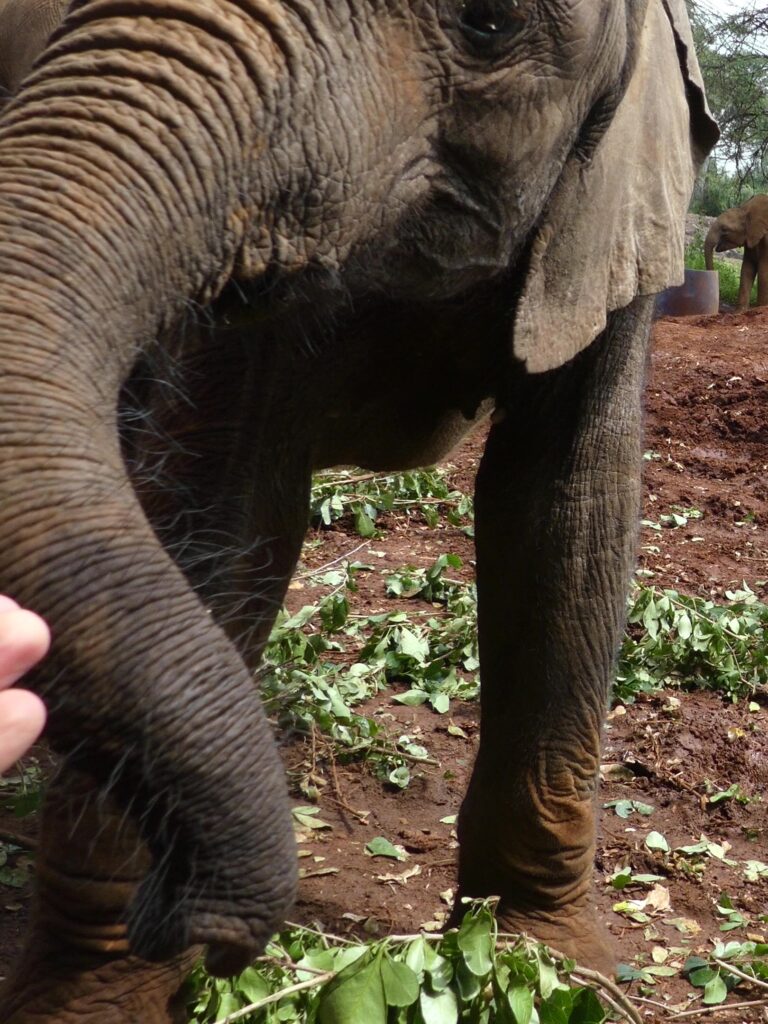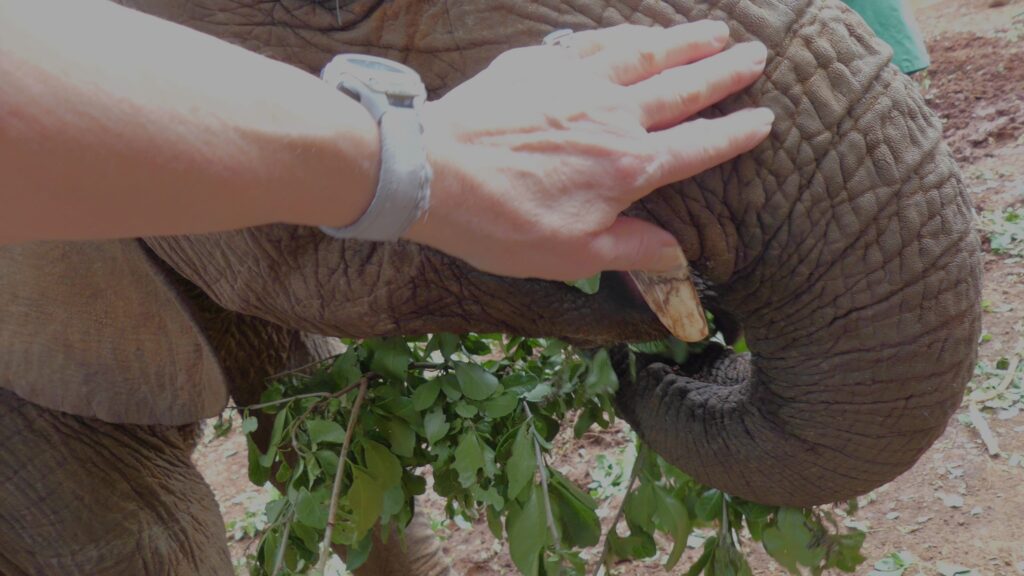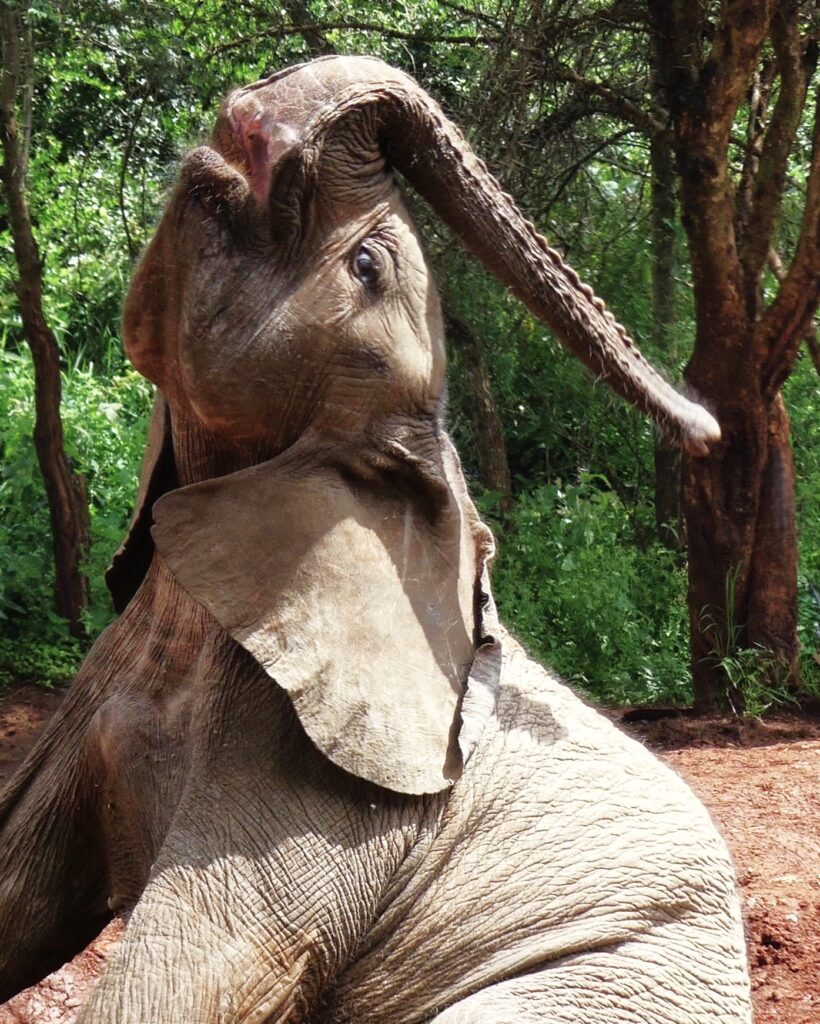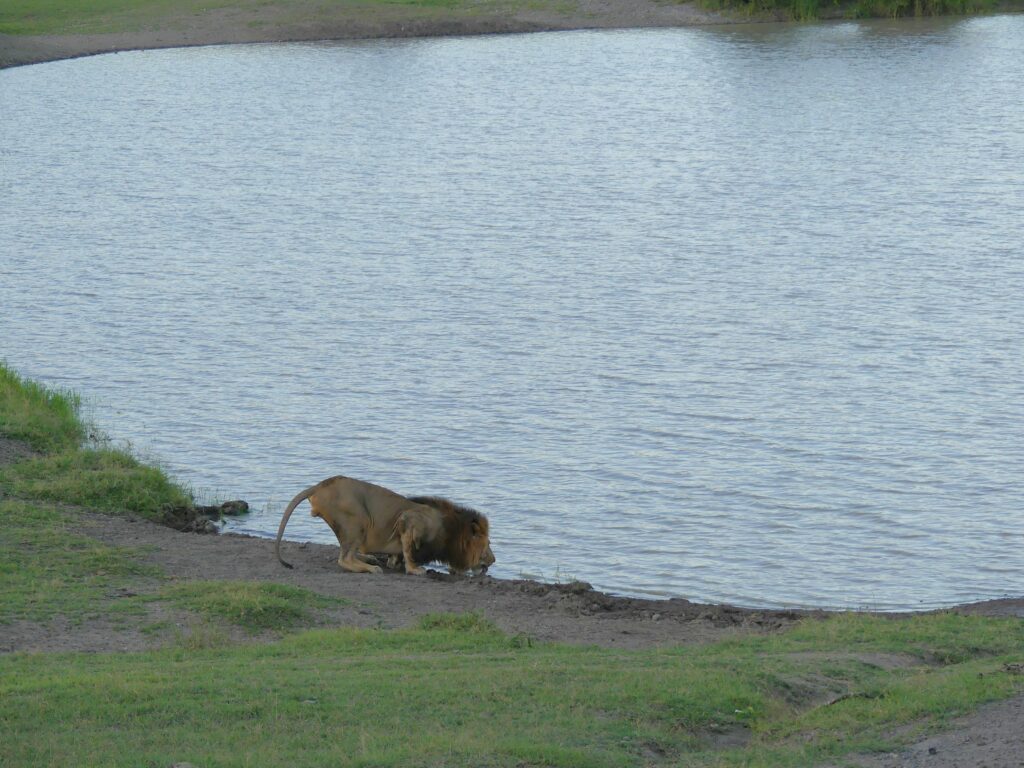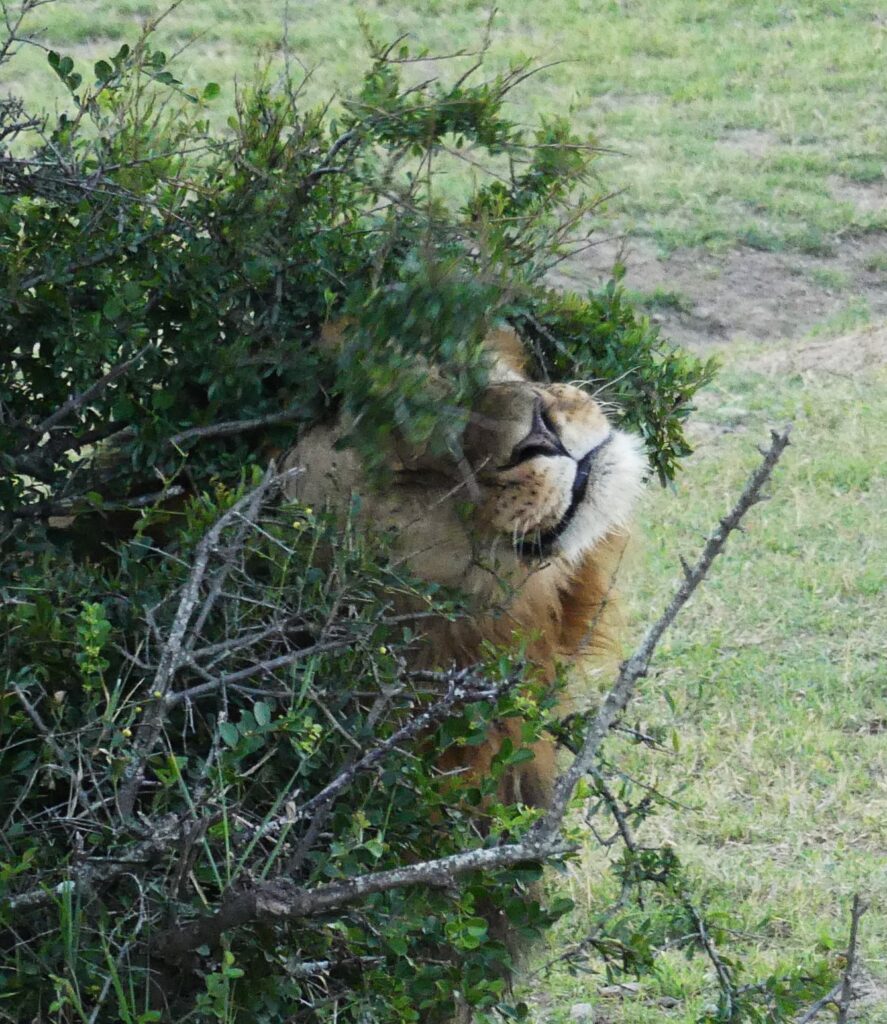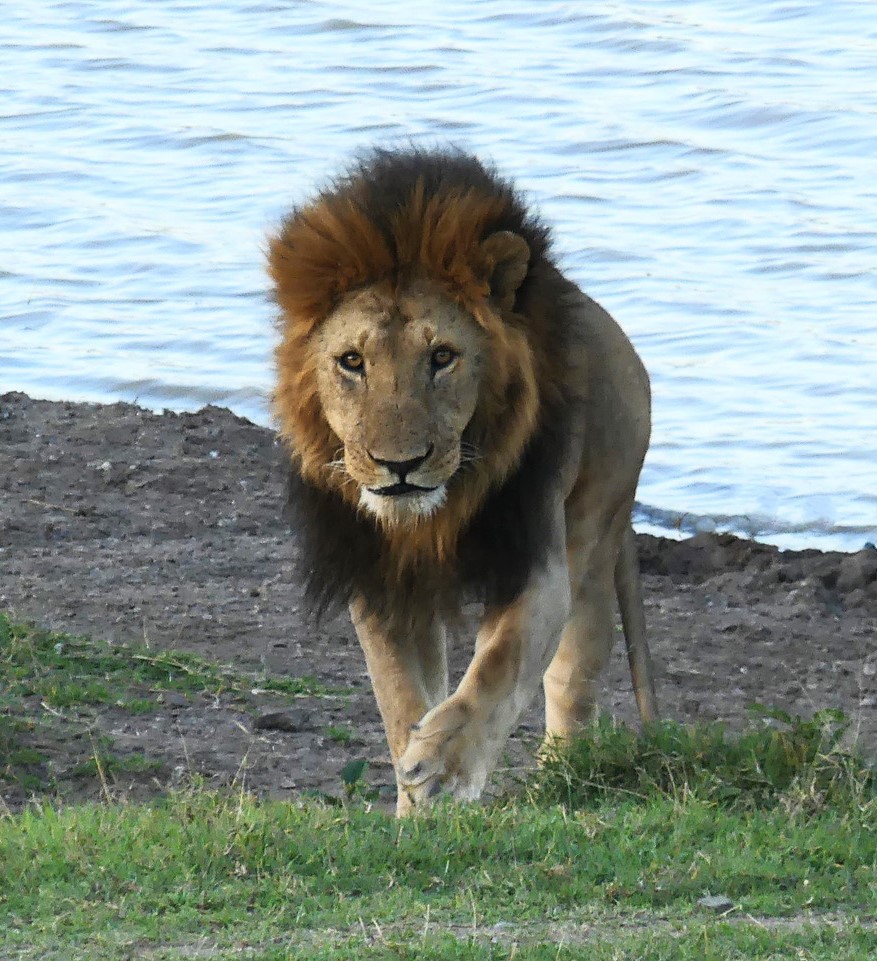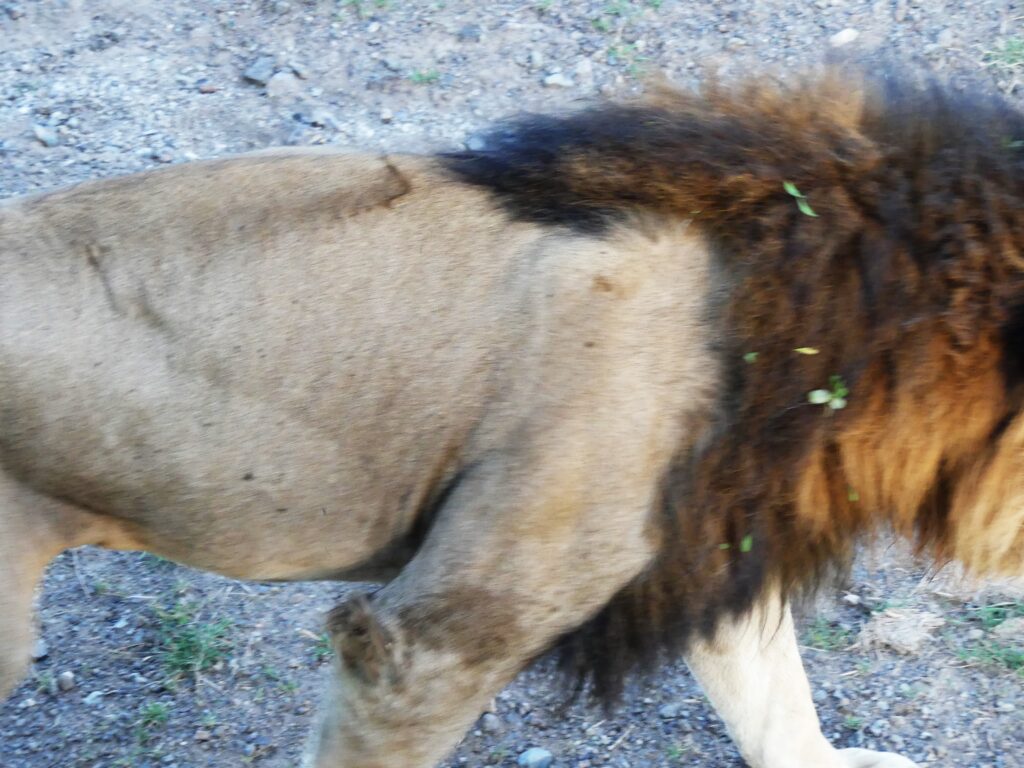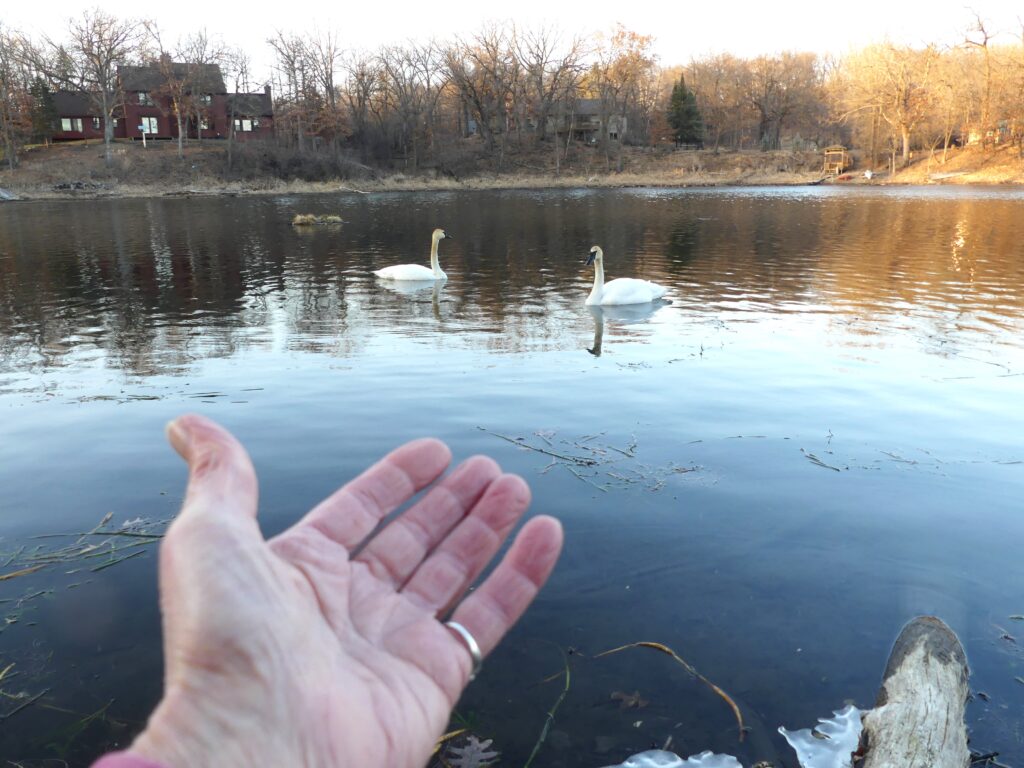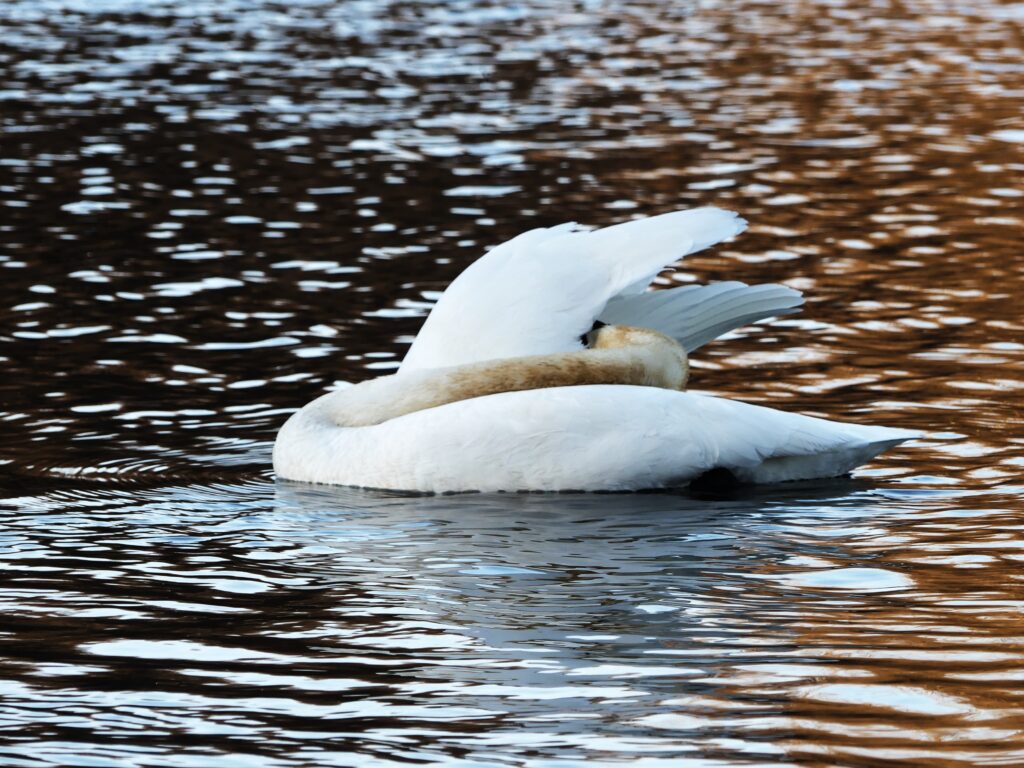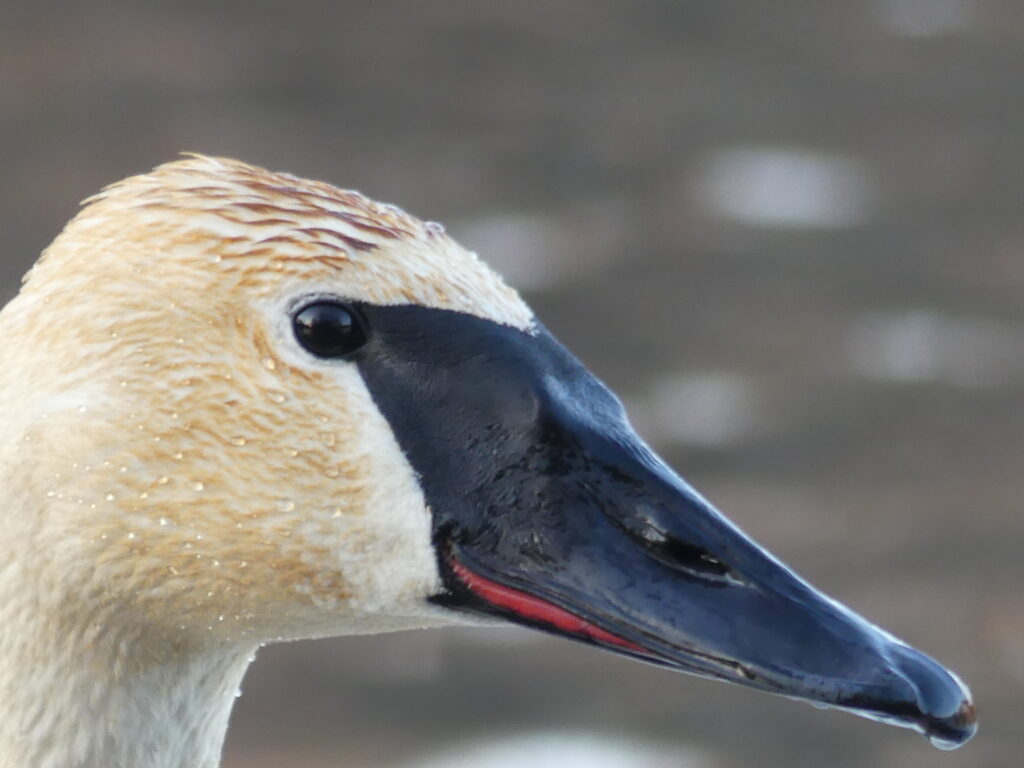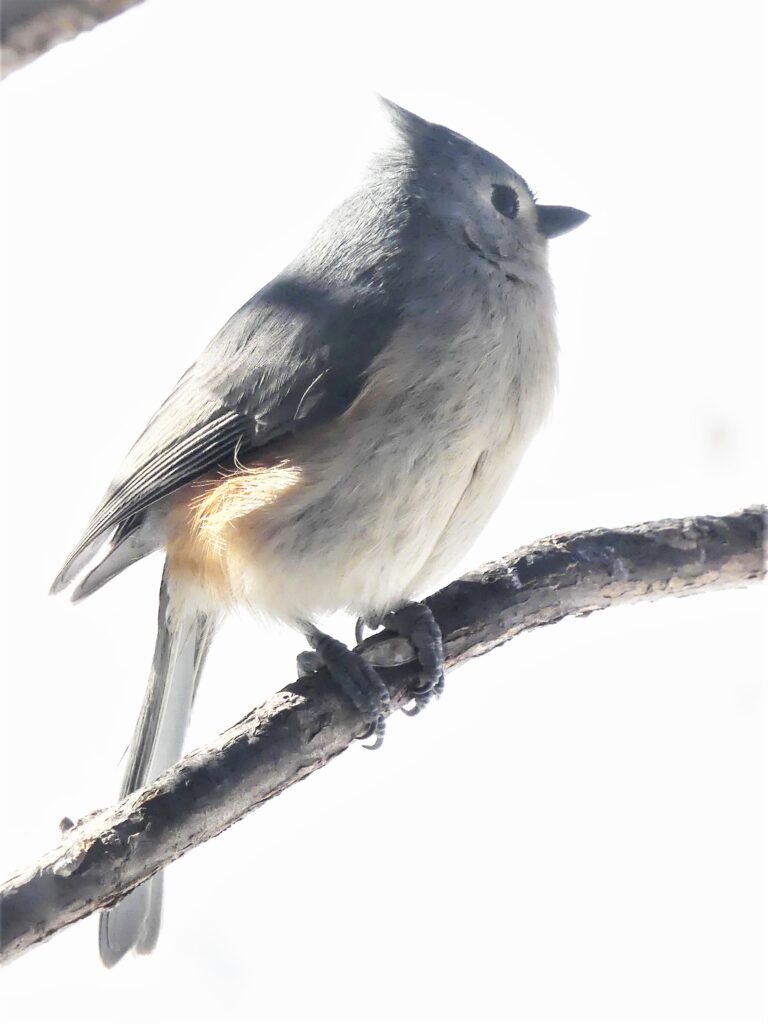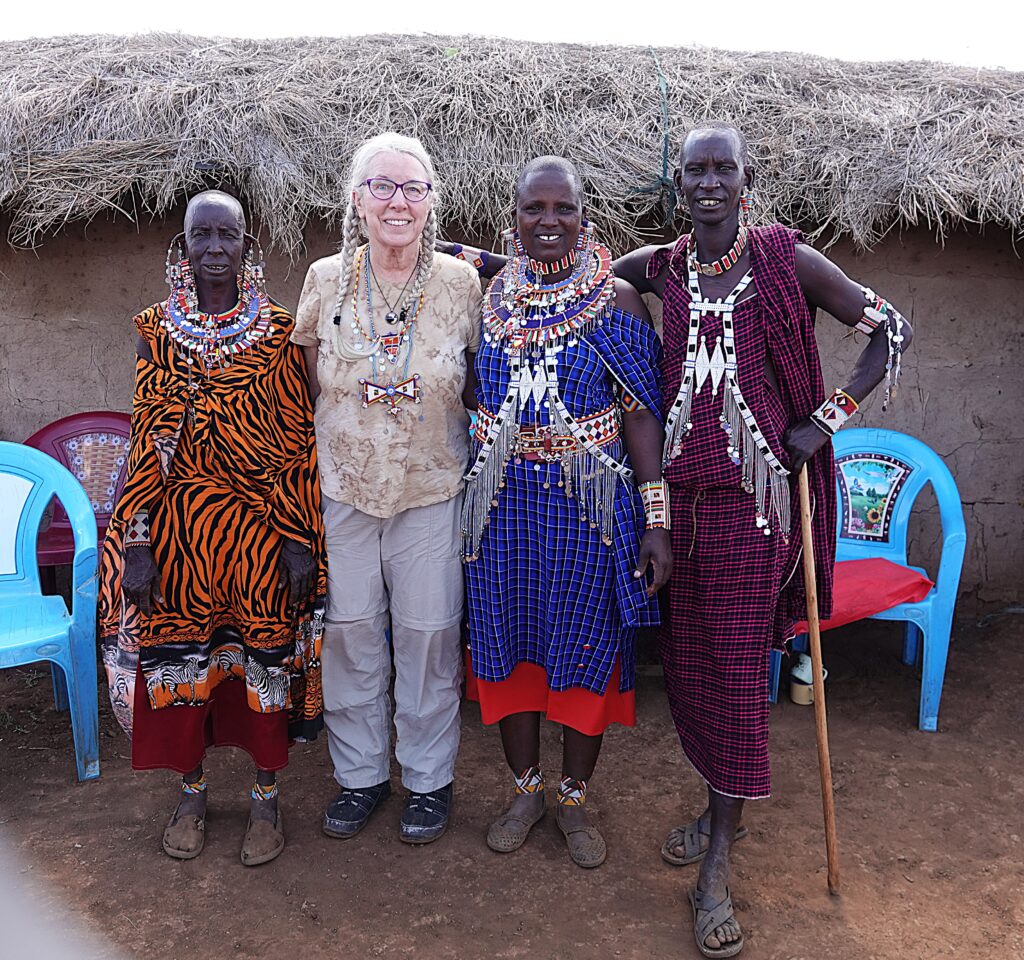
Above, from left, Solomon’s mother, me, Mama Mary, and Solomon in front of their house.
I wrote a blog post but hoped it could reach more people. Thanks to Tad Johnson for turning it into an interview and publishing it in the local papers. Here’s the result, with a few extra photos. You can see more of Kenya and Tanzania this Saturday, May 10th, noon to 5:00 at the Lakeville Art Center. Click here for information on the Downtown Lakeville Art Crawl and all the artists. I’ll have photos, my hand-made photo cards, birthday calendars, and my book – which is needed now more than ever! Enchanted – Reflections from a Joyfully Green and Frugally Rich Life
LAKEVILLE WOMAN THINKS OF KENYAN FRIENDS ON EARTH DAY
On Earth Day, longtime Lakeville resident Holly Jorgensen found a way to connect her Minnesota community to her Maasai tribe friends half a world away in southern Kenya.
A chance meeting with a Maasai man during her nine-day African safari in January 2024 led to striking up a friendship with Solomon and her eventual return this spring to Kenya to meet more of her Maasai friends she has stayed in touch with online in the past year.
Jorgensen, who authored the book “Enchanted: Reflections from a Joyfully Green and Frugally Rich Life,” has always been interested in how humans can reduce their impact on the Earth, but her visit to Africa deepened her exploration.
The Maasai, a nomadic tribe that lives in areas of Kenya and Tanzania, leave behind virtually no environmental footprint other than the ones they make in grounds surrounding their villages.
After learning more about the Maasai, Jorgensen felt their way of living would be a good message to share during Earth Day close to home and she returned the favor by bringing Lakeville Friends of the Environment Earth Day T-shirts to her Maasai friends on her trip in February and March.
“I was hesitant to offer T-shirts to people who wore much more beautiful and meaningful traditional clothing, but was encouraged to bring them by people in the know,” she said. “I told the family I was bringing Earth Day shirts because I so respected the Maasai way of living lightly on the Earth. I also hoped it might be a small connection between Kenya and Lakeville. Whatever their reason, they graciously accepted them with appreciation.”
Jorgensen’s connection to the Maasai started during her 2024 safari when she visited a village. Later, she saw Solomon, a Maasai warrior, standing guard outside between the hotel and the wilds of Amboseli.
Despite the language barrier, Jorgensen struck up a conversation with him and the two exchanged phone numbers.
“When he asked me for my number, I thought, why not? I could always block him if need be,” she said. “When our group was leaving and everyone was saying ‘Good-bye,’ he said: “See you later!” I thought, no, you won’t. But Solomon was right. Our brief but regular communications on WhatsApp are just part of all that compelled me to return to Africa in 2025.
“I had always been intrigued by indigenous communities and respected their unique lifestyles and relationships with animals,” she said. “I’ve always been curious and enjoy meeting people — especially ones I can learn from.”
Jorgensen wrote about her frugal lifestyle in her book and maintains a blog at hollyonthelake.com, but she said “in Kenya were people who had much less impact on the Earth and climate, had many fewer material goods, yet were beautiful, gracious, friendly, and seemed happier than many Americans.”
The Maasai live in homes made of mud, cow dung and sticks, allowing the homes to “melt back into the Earth” when they need to move.
“I wouldn’t suggest we Minnesotans could or should live like that, but seeing them makes one wonder just how big and fancy our homes need to be,” she said. “What materials might be kinder to the Earth than the ones we use and discard, use and discard, use and discard?”
She said the Maasai raise cows, goats, and sheep, but they rarely kill them for meat. They drink milk and, as strange as it sounds, blood from the animals. When an animal is killed, they use nearly all that the animal offers to make food, blankets, clothes, and other items.
During her recent trip, Jorgensen visited Solomon’s family and received three special beadwork necklaces and several bracelets from his wife, who thanked Jorgensen for paying for their daughter’s school fees and hospital visit after the girl fainted.
“When I asked Solomon’s younger brother what was the best thing about being Maasai, he didn’t hesitate before saying ‘family.’ He went on about how they live together, share what they have, take care of each other, and respect elders for their wisdom and vision concerning the Earth,” she said.
She said she’s no expert on the ancient culture, as the more she learns the more she realizes how little she knows about it.
“What I do know is how truly indigenous — meaning ‘of the land’ — they are, even as they are forced or choose to adopt some modern ways,” she said.
Jorgensen has always had an affinity for nature, but said her African safari made her fall in love with the whole Earth.
She said during her visit she didn’t experience the dry, cracked ground from droughts or raging rivers from floods.
“But reading, watching documentaries, and staying in touch with African friends, I can’t ignore the fact that climate events are increasingly murderous to precious lives, both human and wild. So forgive me if I keep attempting to speak for the Earth as I share photos of its splendid, yet vulnerable inhabitants.”
Jorgensen, who will have some of her African photos on display during the Lakeville Art Crawl on May 10 and a Burnhaven Library exhibit in November and December, said Solomon recounted to his family his first meeting with Jorgensen in the grassland.
“In his soft voice and Maa language (interpreted by teacher Ann) he said ‘I couldn’t understand your language, but I could see your heart,’ “ Jorgensen said. “I was overwhelmed and humbled by the way they honored me. I resolved to strive for whatever Solomon saw in me that first day. Was it openness? I hoped to develop the gift of seeing into hearts, or, at the very least, acknowledging the heart in every body, regardless of how different their appearance, language, or customs.”
Tad Johnson is a managing editor of Sun Thisweek and the Dakota County Tribune
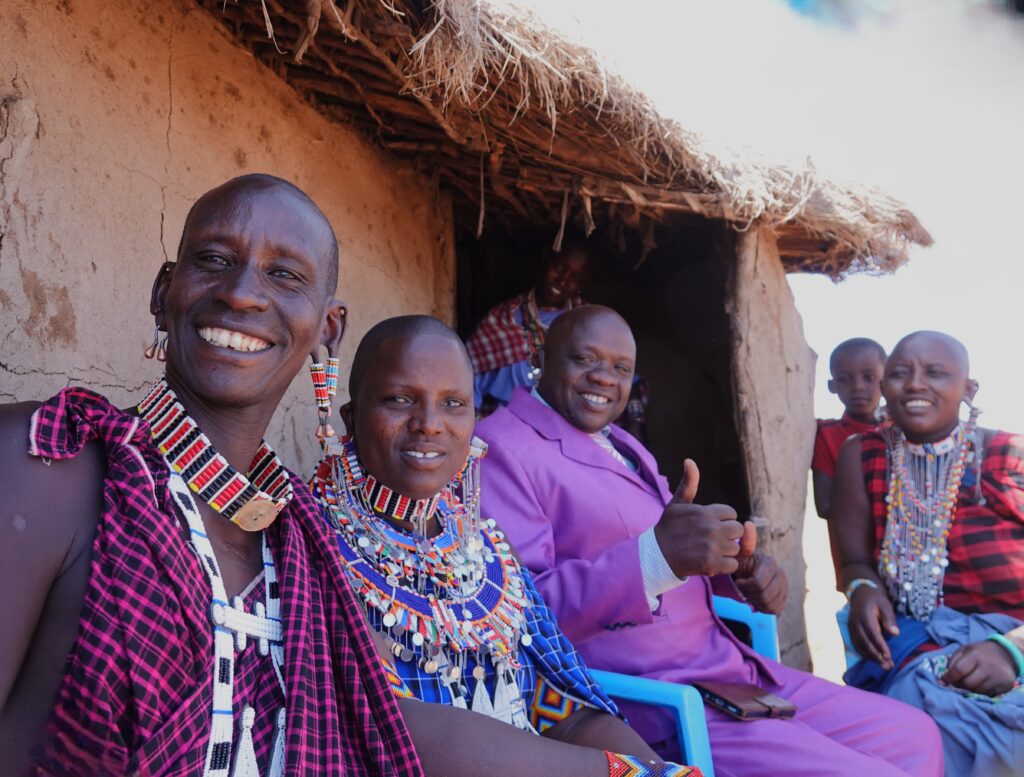
Solomon, Mama Mary, their pastor, friends, and their youngest son by the open doorway to their home.
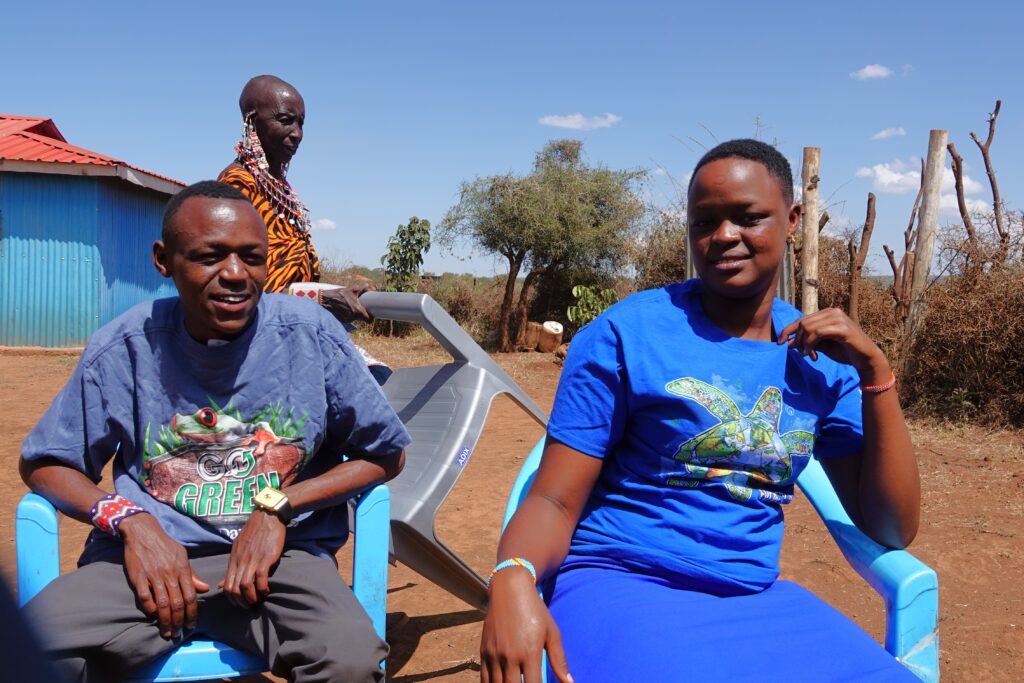
Solomon’s younger brother, Benjamin, helped us translate. Solomon’s daughter, Faith, (not pictured) works with AMREF promoting the girlchild’s health and rights.
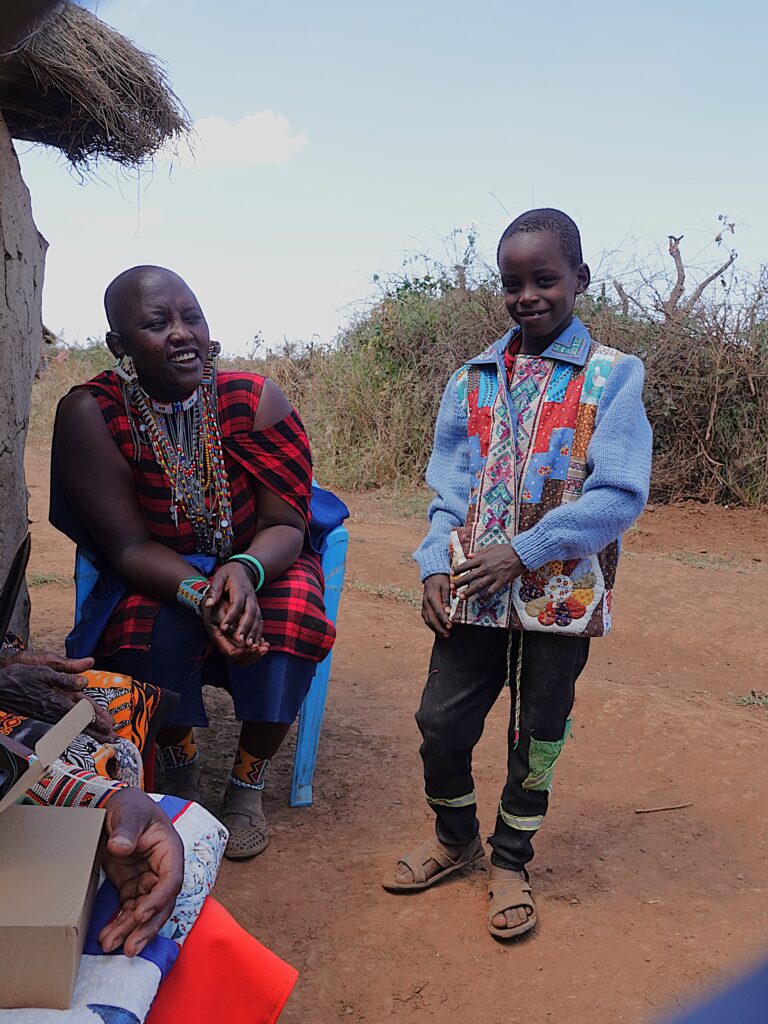
Solomon’s son is wearing a jacket my mother made and Mama Mary holds a small quilt that I made, with pictures of northern animals on it. Along with the T shirts and some twinkling solar-powered lights to keep the lions away, they seemed appropriate gifts, knowing they would give me precious traditional hand-made beadwork. I suspect she learned beading from her mother, as I learned quilting from mine. Are you surprised they would wear anything warm? I was, but the rangers wore sweaters all day and it gets “cold” at night.
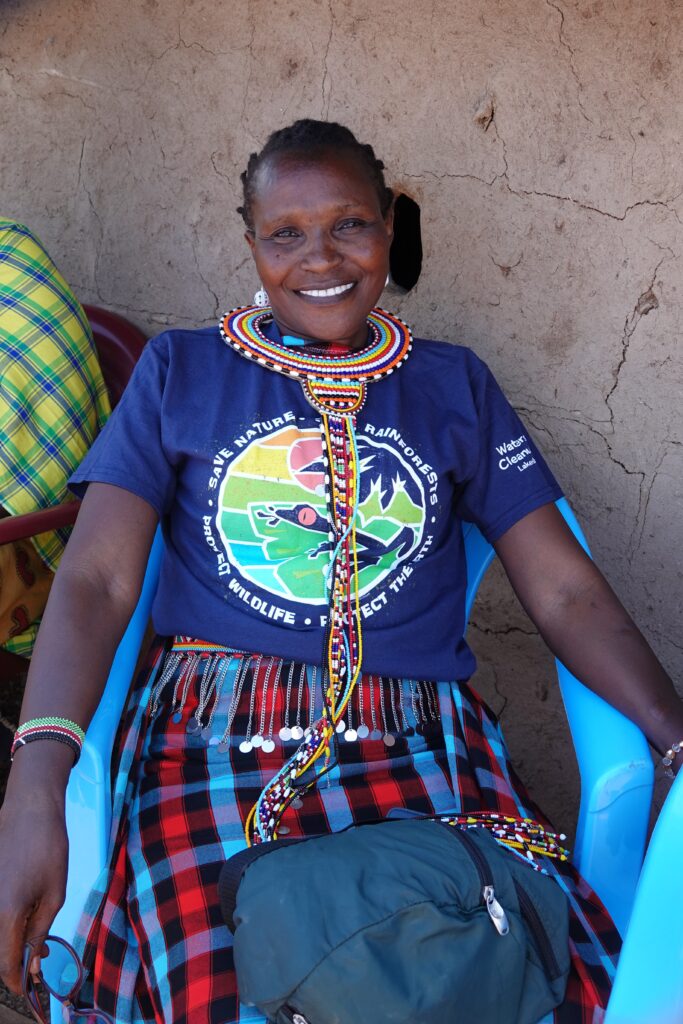
Daughter Mary was at school, where we visited earlier. This is lovely teacher Ann, who translated for us.
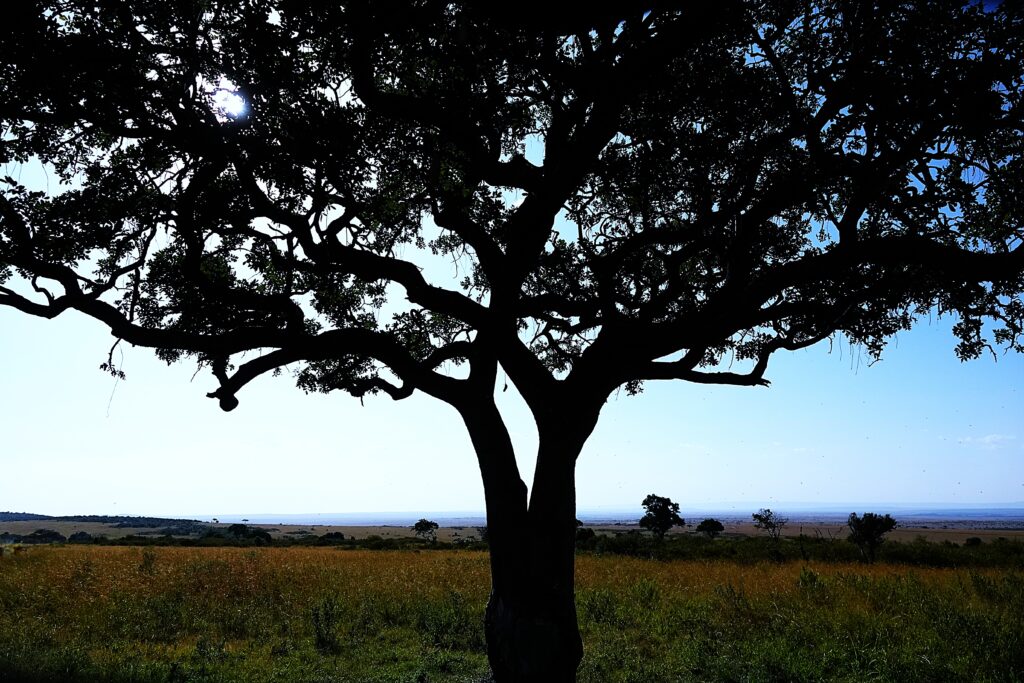
The trees in Kenya are famously photogenic, but don’t supply a lot of wood, as our white pine do. That explains a lot.
